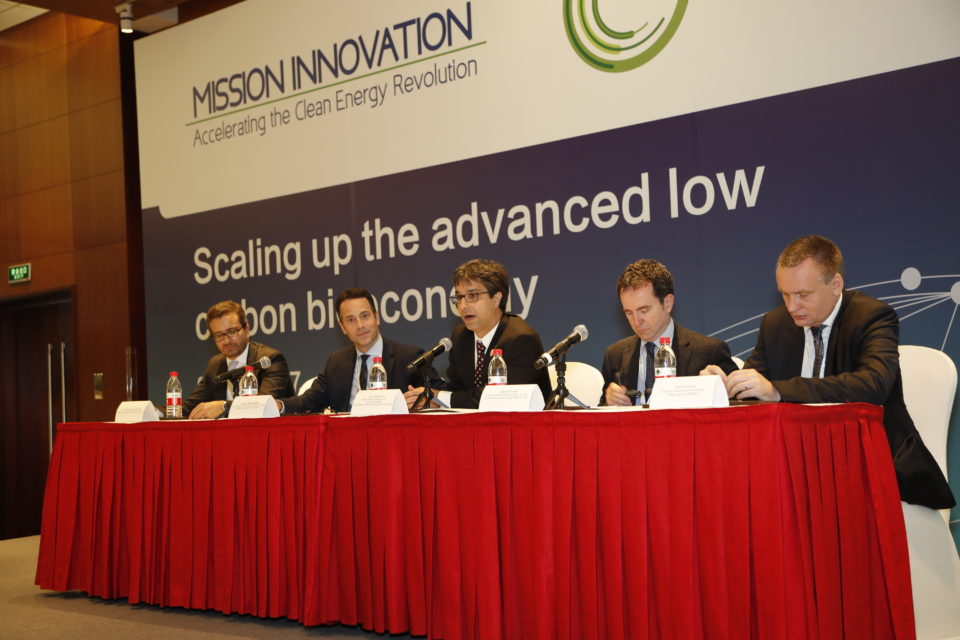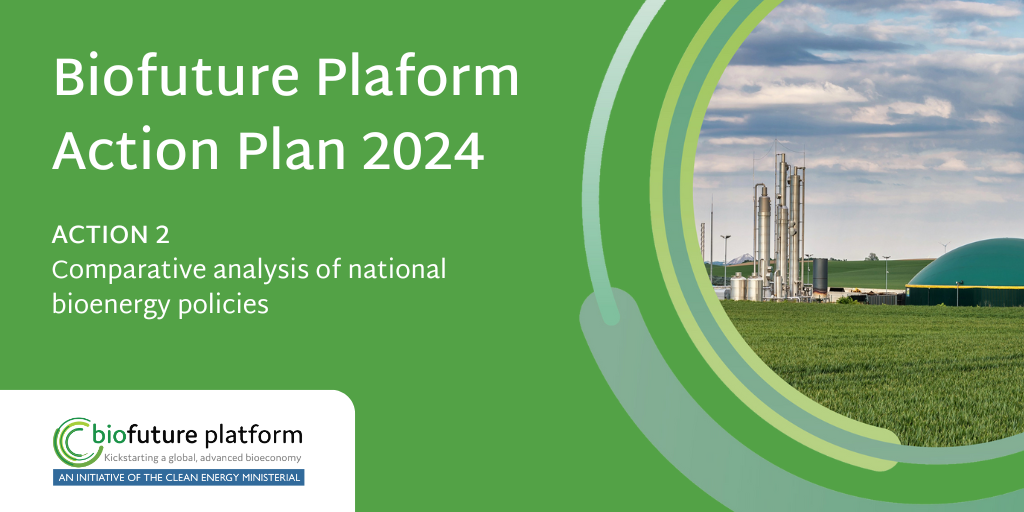Energy experts from key international agencies delivered a strong collective message during the June 8 Biofuture Mission Innovation event at the Beijing 8th Clean Energy Ministerial Summit and 2nd Mission Innovation Ministerial (CEM8/MI2).
Paolo Frankl, head of the renewable energy division of the International Energy Agency, advocated that “Sustainable bioenergy is a major unavoidable component of the portfolio needed in a low carbon energy economy”. “Low carbon fuels will play an important role in de-carbonizing transport no matter how much we stretch other technologies.”
The growing awareness about the need to dramatically scale up the low carbon bioeconomy was paired with a convergent understanding that it can be done sustainably, given the right policies, practices and frameworks. That was the message presented by a joint interagency joint policy statement on “Bioenergy for Sustainable Development”, encapsulating the views of the Food and Agriculture Organization of the United Nations (FAO), the International Renewable Energy Agency, (IRENA), and the IEA-Bioenergy technical cooperation programme.
“There is a high risk of failing to meet long-term climate targets without bioenergy” as “bioenergy accounts for three-quarters of all renewable energy use today and half of the most cost-effective options for doubling renewable energy use by 2030” underlines Dolf Gielen, director of the International Renewable Energy Agency (IRENA), presenting the document.
The event was organized, in partnership with Mission Innovation, by the Biofuture Platform, a coalition of 20 leading countries devoted to accelerate investments and increase international collaboration in the low carbon bioeconomy.
Other speakers in the event, including government officials, investors, industry representatives and academia, singled out the recent contributions of Mission Innovation and the Biofuture Platform, as country-led multilateral initiatives, and of below50, a private-sector led initiative, to contribute to fulfill that need. Presentations showcased activities, research projects, policies, investment plans and promising new technologies to achieve performance breakthroughs and cost reductions for sustainable large scale production and utilization of advanced biofuels and biomass. Some presentations are available in the links below.





